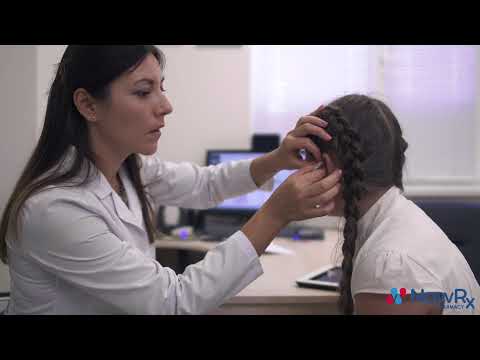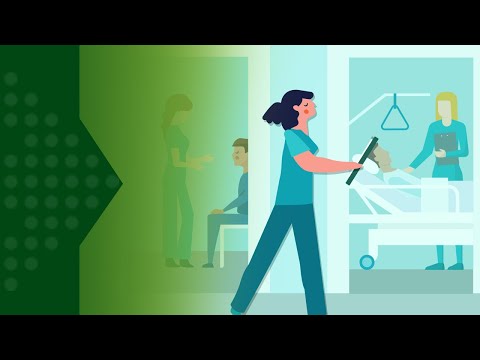How to Appeal for Medical Financial Assistance
Contents
- Introduction
- What is Medical Financial Assistance?
- Who is Eligible for Medical Financial Assistance?
- How to Apply for Medical Financial Assistance?
- What Documentation is Required for Medical Financial Assistance?
- How is the Application Process for Medical Financial Assistance?
- What are the Types of Medical Financial Assistance?
- What are the Benefits of Medical Financial Assistance?
- What are the Disadvantages of Medical Financial Assistance?
- Conclusion
If you or a loved one is facing a medical emergency, you may be wondering how to appeal for financial assistance This can be a daunting task, but by following these tips, you can make the process a little easier.
Checkout this video:
Introduction
Medical financial assistance is available for those who need help paying for medical care. There are a number of ways to appeal for assistance, and the best way to do so will vary depending on your individual circumstances. In general, however, there are a few steps you can take to increase your chances of success.
What is Medical Financial Assistance?
Medical Financial Assistance is help that may be available to you to cover some or all of your medical expenses It is sometimes called “charity care.”
Typically, hospitals and other medical providers offer some type of financial assistance to patients who:
-Have a low income
-Have high medical expenses in relation to their income
-Are facing a financial hardship
If you think you might qualify for Medical Financial Assistance, it’s important to know that each hospital or provider has its own guidelines and application process. And, not all providers offer financial assistance. So, it’s a good idea to check with the hospital or provider before you receive treatment to see if they have a program and what the guidelines are.
Who is Eligible for Medical Financial Assistance?
Most people who cannot afford to pay their medical bills are eligible for medical financial assistance. To find out if you are eligible, contact your hospital’s financial assistance office or the social worker at your doctor’s office. You may also be able to get help from a patient advocate or a free or low-cost legal service.
There are many programs that offer medical financial assistance, but each program has different eligibility requirements. Some programs only help people with certain types of medical conditions, such as cancer or HIV/AIDS. Other programs only help people who make below a certain income level.
However, there are also many programs that will help anyone who is having trouble paying their medical bills regardless of their income level or type of condition. If you are having trouble paying your medical bills it is worth checking into any and all programs that might be able to help you.
How to Apply for Medical Financial Assistance?
Financial assistance is available for those who need help paying medical bills Several organizations offer medical assistance but the process of applying for assistance can be confusing. This guide will explain how to appeal for medical financial assistance from various organizations.
There are three main types of financial assistance: insurance, government programs, and charity care.
Insurance typically covers a portion of medical expenses, but there are still deductibles, copayments, and coinsurance that the patient is responsible for. Government programs like Medicaid and Medicare can help cover some of these costs. patients must meet certain eligibility requirements to qualify for these programs.
Charity care is offered by many hospitals and other medical facilities. These programs typically have income requirements that must be met in order to qualify for assistance.
Applying for medical financial assistance can be a daunting task, but this guide will help explain the process so that you can get the help you need to pay your medical bills.
What Documentation is Required for Medical Financial Assistance?
There are many types of financial assistance available for medical care, and the exact documentation required will vary depending on the type of assistance you are applying for. However, there are some common elements that are generally required for all applications.
First and foremost, you will need to provide proof of your income and assets. This may include tax returns, pay stubs, bank statements, and other financial documents. If you do not have access to these documents, you may be able to have them obtained by the financial assistance office.
In addition, you will need to provide documentation of your medical expenses. This may include bills, insurance statements, and other documentation of treatment costs. If you do not have access to these documents, you may be able to have them obtained by the financial assistance office.
Finally, you will need to provide proof of residency in the state or country where you are seeking financial assistance. This may include a driver’s license or other identification document.
By providing these types of documentation, you will increase your chances of being approved for medical financial assistance.
How is the Application Process for Medical Financial Assistance?
There are several ways to apply for medical financial assistance. You can fill out an online application, call a customer service representative, or print out and mail in an application.
If you’re applying online, you’ll need to provide some basic information about yourself and your family. You’ll also need to upload some documents, like your most recent tax return.
If you’re calling customer service, they’ll be able to answer any questions you have about the application process. They can also help you fill out the application over the phone.
Finally, if you’re mailing in your application, you’ll need to include all of the required documents. You can find a complete list of what you’ll need on the website.
What are the Types of Medical Financial Assistance?
There are several types of medical financial assistance available to those who need help paying for medical care. The type of assistance you receive will depend on your individual circumstances and needs. Some common types of medical financial assistance include:
– Grants: Grants are typically need-based, meaning they are awarded to those who demonstrate a financial need for the assistance. Grants do not have to be repaid.
– Loans: Loans are typically awarded based on creditworthiness. Loans must be repaid, usually with interest.
– Scholarships: Scholarships are typically merit-based, meaning they are awarded to those who demonstrate academic or other achievement. Scholarships do not have to be repaid.
– Discounts: Discounts are typically offered by providers as a way to make their services more affordable. Discounts may be based on financial need or other factors.
What are the Benefits of Medical Financial Assistance?
Most people are aware that medical financial assistance exists, but many do not know the full extent of its benefits. Medical financial assistance can help with a wide variety of expenses, both big and small. Below are some of the most common benefits associated with medical financial assistance.
-It can help with the costs of treatment, such as doctor’s appointments, surgeries, and medications.
-It can help with the costs of travel to and from treatment appointments.
-It can help with the costs of childcare while you are receiving treatment.
-It can help with the costs of housing if you need to be near a treatment center.
-It can help with the costs of living expenses if your income is impacted by your illness or injury.
If you or a loved one are facing a serious medical issue, medical financial assistance can be a lifeline. It is important to remember that each case is unique and that not all assistance programs will cover all expenses. It is important to research various programs and to speak to an experienced medical financial assistance professional to find the best options for your specific situation.
What are the Disadvantages of Medical Financial Assistance?
There are a few potential disadvantages to seeking medical financial assistance. First, the process can be time-consuming and complicated. You may have to provide a lot of documentation and jump through several hoops before you are approved for assistance. Second, even if you are approved for assistance, you may only receive a limited amount of funding. This can leave you with significant out-of-pocket costs. Finally, there is no guarantee that you will be approved for assistance. If your application is denied, you will be responsible for the full cost of your medical care.
Conclusion
Thank you for your time. Remember, you have the right to appeal any denial of medical financial assistance, and this guide has given you the tools you need to do so. Be persistent and don’t give up – your health and wellbeing are worth it.






